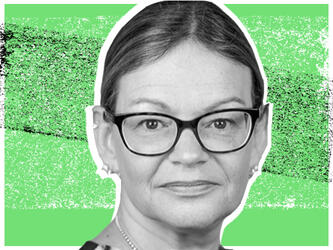Inequality, Britain and the pandemic

The pandemic has brought into sharp focus how disparities between different groups – from income level to a person’s age, race or gender, among others – all lead to very different experiences of the virus and its wider consequences. This, combined with the fact that many have come into contact with the welfare system for the first time during the crisis, gives reason to think the public mood might be shifting in favour of taking greater action to address the country’s inequalities.
Our recent study finds some evidence to suggest there’s now a greater appetite for change – but also that our political identities still strongly shape how we view questions of inequality. The pandemic hasn’t, as yet, unified the country on the need for a rethink on this issue, meaning those who would like to see a more interventionist state still have some way to go to make their case to the public.
For example, 55% of Britons think the crisis means there’s a greater need for the government to take steps to reduce differences in income levels – much higher than the 15% who disagree. But there’s a big divide in opinion between voters for the two main parties, with Conservatives ( 41%) nearly half as likely as their Labour counterparts ( 77%) to think we should be doing more on income inequality.
Similarly, while the public are more likely than not to think the government’s support for workers and businesses during the pandemic strengthens the case for more economic intervention in future, support for this view doesn’t reach a majority, and people’s instincts are strongly associated with their politics: two-thirds of Labour remainers believe the crisis justifies more intervention, compared with just one in five Conservative leavers.
These divides extend to the ways in which we see the underlying principles at stake in debates about inequality. Much has rightly been made about the collective sacrifice of the nation during the pandemic, as well as the idea that we’re all in it together, but the reality is that many Britons have a largely individualistic view of where responsibility lies in determining our fates.
In our study, we found that nearly half the population say it’s people’s own fault if they lost their jobs during the pandemic, compared with three in 10 who think luck is the bigger factor – and Conservative voters are much more likely than Labour voters to attribute these job losses to personal failure.
This finding is “enough to all but extinguish political hope”, according to the Guardian journalist Polly Toynbee, reflecting a sentiment expressed by many on the left. But we did find areas that seem ripe for action, given people’s views on them, which are characterised much more by consensus.
The clear message from the public in our study was that, of all the issues asked about – from inequalities based on income, gender, race, education, health, and between generations – it is disparities based on geography that are most serious and should be prioritised.
In fact, in follow-up research, we found that, by international standards, Britons are unusually focused on area-based inequalities. Half say disparities between more and less deprived areas of the country are one of the most serious types of inequality – much higher than the European average of 39%, and above any other western European nation. These inequalities are also not just a concern among those directly affected by them – all groups, including voters of the two main parties, give them priority.
This suggests that the government’s levelling up agenda is resonating with the public. It’s perhaps not surprising, given that both Brexit and the emerging importance of red wall constituencies at the last general election brought geographical concerns to the fore.
Actually tackling regional disparities is hard, however, as the prime minister is finding out. He has recently sought to reinvigorate the government’s plans for levelling up, amid concerns that the agenda is too vague. Some in Number 10 apparently refer to it as a “slogan without a purpose”.
The unusually high level of public concern about geographical inequalities provides a strong reason for continuing to focus on these issues. As our research shows, views on inequality are largely distinguished by division – but this is a rare point of unity, and one that could set the direction for how we emerge from the pandemic.
Kirstie Hewlett is a research associate at the Policy Institute, King’s College London

We hope you enjoyed this article.
Research Live is published by MRS.
The Market Research Society (MRS) exists to promote and protect the research sector, showcasing how research delivers impact for businesses and government.
Members of MRS enjoy many benefits including tailoured policy guidance, discounts on training and conferences, and access to member-only content.
For example, there's an archive of winning case studies from over a decade of MRS Awards.
Find out more about the benefits of joining MRS here.













0 Comments